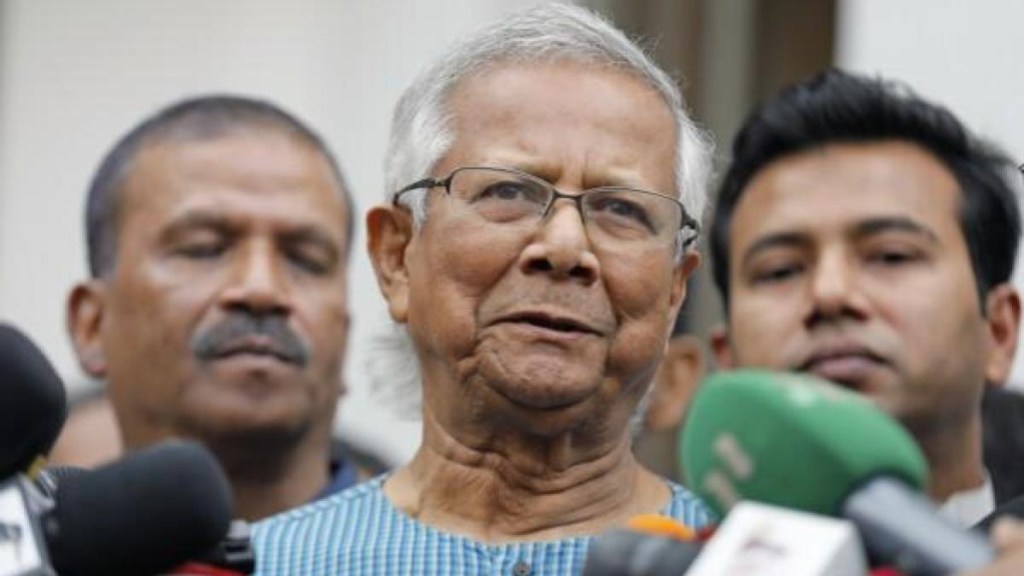Bangladesh has plunged into a political crisis, prompting a swift and decisive intervention by Nobel laureate Dr Muhammad Yunus, who has been named the chief adviser of the interim government. The announcement came from the coordinators of the Anti-Discrimination Student Movement, with Nahid Islam, a key figure in the movement, revealing the news through a video posted on social media. This unexpected development follows a tumultuous period marked by Prime Minister Sheikh Hasina’s sudden resignation and departure from the country.
The Rise of Dr. Muhammad Yunus
Dr Yunus, renowned globally for his work in microfinance and as a Nobel Peace Prize recipient, accepted the role of chief adviser at the behest of the student community. “Prof Yunus has agreed to take on this crucial responsibility at the call of the student community to save the country,” Nahid Islam stated, according to the Daily Star newspaper. The urgency of the situation led to the immediate announcement of the interim government framework, emphasizing Dr Yunus’s wide acceptability and international recognition.
Collapse of the Hasina Government
The crisis erupted when Prime Minister Sheikh Hasina discreetly resigned and fled Bangladesh in a military aircraft. Her departure left a significant power vacuum, which the Bangladeshi Army quickly moved to fill. The sudden power shift triggered widespread chaos across the country. As news of Hasina’s departure spread, mobs stormed her residence, vandalizing and looting the property. The violence was a stark manifestation of the deep-seated dissatisfaction that had brewed over recent weeks, culminating in anti-government protests that claimed over 300 lives.
Political Manoeuvring and Foreign Influence
The appointment of Dr Yunus as chief adviser has drawn varied reactions. Some view it as a strategic move orchestrated by foreign powers, particularly the United States. Indian security expert Sushant Sareen remarked, “The Americans have got their man in office. Regime change operations successful.” This sentiment was echoed by author Sandip Ghosh, who speculated that Yunus’s appointment was premeditated, suggesting his deep connections with influential international entities.
Activist Vijay Patel highlighted Yunus’s accolades, including the Ramon Magsaysay Award, funded by the Ford and Rockefeller Foundations, portraying him as a pivotal figure in the orchestrated regime change. On the other hand, Kaushik Basu, a former chief economic adviser, endorsed Yunus’s leadership qualities, emphasizing his non-vindictive nature, commitment to democratic principles, and secularism.
The Role of Foreign Forces and Domestic Instability
Complicating the situation further is the alleged involvement of foreign intelligence agencies, notably Pakistan’s ISI and China. According to reports in the public domain, the blueprint for the regime change was formulated in London with ISI’s collaboration and subsequently executed in Bangladesh. The Islami Chhatra Shibir (ICS), the student wing of Jamaat-e-Islami Bangladesh, played a crucial role in orchestrating the student protests that ignited the broader unrest.
Bangladeshi officials claim to have evidence of BNP’s acting chairman Tarique Rahman meeting with ISI officials in Saudi Arabia. These meetings are believed to have laid the groundwork for the current upheaval. Tarique Rahman, known for his ‘India Out’ campaign, is reportedly poised to return to Dhaka, further escalating tensions. His return follows the release of his mother, former Prime Minister Khaleda Zia, who had been under house arrest.
The Path Forward
As the interim government takes shape, Dr Yunus faces the formidable task of navigating Bangladesh through this period of instability. Nahid Islam urged President Mohammed Shahabuddin to expedite the formation of the interim government, underscoring the urgent need for stability. The president’s recent actions, including dissolving parliament and ordering Khaleda Zia’s release, signal a potential shift in the nation’s political landscape.
The events in Bangladesh underscore a critical juncture in the country’s history, with significant implications for its future governance and stability. The involvement of international actors and the complex interplay of domestic forces make this a highly volatile situation. As Dr Yunus steps into his new role, the eyes of the world will be on Bangladesh, watching closely as the nation grapples with its latest political crisis.
